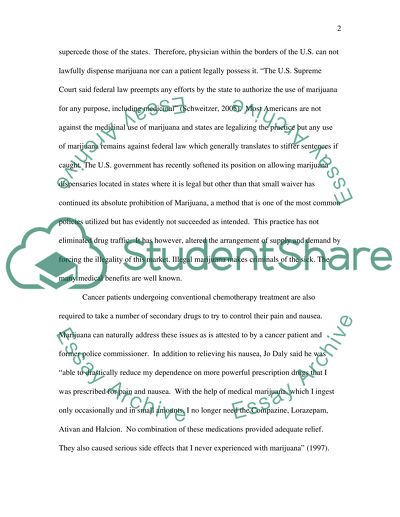Cite this document
(“How the Legalization or Decriminalization of Marijuana Can Optimize a Essay”, n.d.)
How the Legalization or Decriminalization of Marijuana Can Optimize a Essay. Retrieved from https://studentshare.org/social-science/1576570-a-5-page-casual-argument-essay-on-the-use-of-medical-marijuana
How the Legalization or Decriminalization of Marijuana Can Optimize a Essay. Retrieved from https://studentshare.org/social-science/1576570-a-5-page-casual-argument-essay-on-the-use-of-medical-marijuana
(How the Legalization or Decriminalization of Marijuana Can Optimize a Essay)
How the Legalization or Decriminalization of Marijuana Can Optimize a Essay. https://studentshare.org/social-science/1576570-a-5-page-casual-argument-essay-on-the-use-of-medical-marijuana.
How the Legalization or Decriminalization of Marijuana Can Optimize a Essay. https://studentshare.org/social-science/1576570-a-5-page-casual-argument-essay-on-the-use-of-medical-marijuana.
“How the Legalization or Decriminalization of Marijuana Can Optimize a Essay”, n.d. https://studentshare.org/social-science/1576570-a-5-page-casual-argument-essay-on-the-use-of-medical-marijuana.


